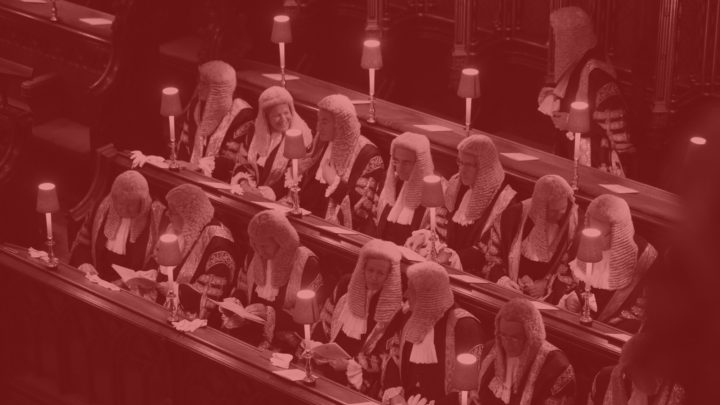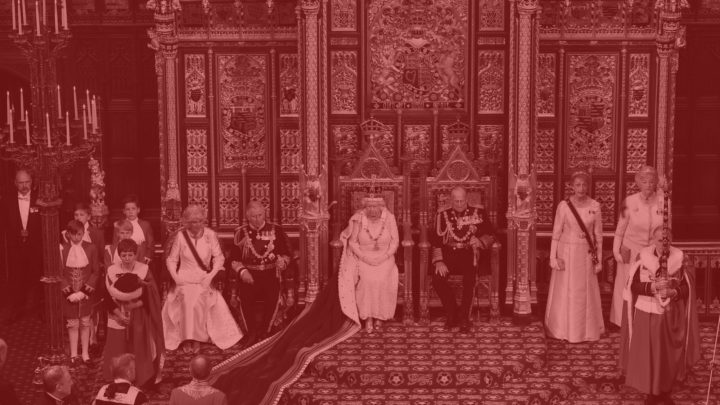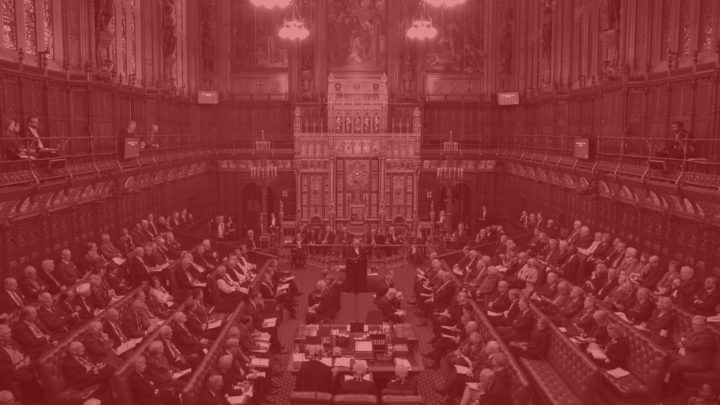
Beyond Brexit:
A programme for democratic reform
1. For democracy – against the EU
We cannot democratise British politics without Brexit.
In the first piece in our five-part programme for democratic reform, Mick Hume remakes the case for leaving the EU. Read Brendan O’Neill’s introduction to the series here.
Any programme for democratic reform in Britain must begin – but not end – with Brexit. Leaving the EU is the precondition for making the UK a truly democratic society, for two reasons.
First, because the European Union is not only undemocratic – it is inherently anti-democratic, depriving the peoples of Europe of the freedom to decide their own destinies.
And second, because 17.4million people voted to Leave, the biggest democratic mandate in British history. If the establishment can feel free to ignore or overturn that popular vote, then by what standard do we live in a democratic society?
From its foundation as the European Coal and Steel Community in 1953, then the European Economic Community from 1956, to the European Union since 1993, one consistent value endorsed by the EU elite has been anti-democracy – the creation of a system that separates power and control in Europe from any expression of the popular will.
The EU’s aim has been not to ‘represent’ the peoples of Europe, but to constrain popular sovereignty and democracy. The European Union is not Europe. It is the anti-democratic union of Europe’s political elites. As the leading Spanish jurist Miguel Herrero de Minon wrote about the EU 20 years ago, ‘The lack of “demos” [the people] is the main reason for the lack of democracy. And the democratic system without “demos” is just “cratos” – power.’ Since then, the EU has gone further still in elevating the power of bureaucracy and technocracy over national sovereignty and popular democracy.
British Remainers in the Labour and Liberal Democratic parties say we should ‘Remain and Reform’. The idea is apparently to make Brussels fill in its ‘democratic deficit’. Yet as the left-wing British historian Eric Hobsbawm observed, it is ‘misleading to speak of the “democratic deficit” of the European Union. The EU was explicitly constructed on a non-democratic (ie, non-electoral) basis, and few would seriously argue that it would have got where it is otherwise.’ If we appreciate the inherently anti-democratic character of the EU and its institutions, why bother trying to reform it?
Apologists for the EU claim that its formation after the Second World War was an attempt to save Europe from further conflicts. The truth is that European elites saw national sovereignty as the primary cause of war – because of the ‘hegemony’ of nationalist politics over the peoples of Europe. In this one-eyed worldview, mass politics had led to war. To those seeking to build a new peace in Europe from the top down, then, popular democracy was part of the old problem, not the solution. The founders of the EU wanted to manage Europe’s affairs while being insulated from the pressure of the masses and nation states.
Constraining democracy in postwar Western Europe meant creating systems that had formal elections and elected representatives, but at the same time would take democratic politics out of the real business of government.
The signals were clear back in 1951, when the leaders of the six founding nations – West Germany, France, Italy, the Netherlands, Belgium and Luxembourg – signed the famous Europe Declaration, which set in train the creation of the European Community and then the EU. It stated that the signatories ‘give proof of their determination to create the first supranational institution and that thus they are laying the true foundation of an organised Europe’. The prefix ‘supra’, from the Latin, means above, over or beyond. The ‘supranational’ institutions of the embryonic EU would operate over and above national politics, and beyond the reach of the citizens of any nation state.
From the 1950s until today, the clear intention of the European political elites has been to create a supranational form of unity above and beyond the reach of national parliaments. Look at the main institutions where the EU does its business, in an atmosphere of secrecy and public silence where the rooms are as free of the air of democracy as they are of tobacco smoke.
The core of the EU’s business is done through COREPER – the Committee of Permanent Representatives – a gathering of senior national officials which handles 90 per cent of EU legislation. Its proceedings are treated as state secrets, its documents usually classed as ‘non-papers’, which means they cannot be accessed by the press or the public despite the EU’s supposed open information rules.
COREPER does the spadework in preparation for meetings of the Council of the EU, which brings governments together to agree on Euro-legislation, usually behind closed doors. Much of this has already been decided in the Council’s hundreds of committees and working groups, all of which operate in secret. The big showcase for the EU is the regular meeting of the European Council, usually described as a ‘summit’ of European leaders. There is no public record of what is said in there, just a set-piece media photo opportunity and a summit communiqué prepared by COREPER. This document, known as Council Conclusions, binds governments to what has been agreed, regardless of what happens in their domestic parliaments or elections between meetings.
As Brussels correspondent Bruno Waterfield says, surveying how EU secrecy bypasses democracy, ‘The Council Conclusions are a compact between leaders that overrides the relationship between voters and their governments’. This is a key point. Some might object, after all, that the European Council is a symbol of representative democracy, since it brings together elected heads of government. But when they get behind the closed doors of the European Council, they cease to be representatives of nation states accountable to their electorates and transmogrify into a new political entity: member states of the EU. These heads of member states draw their authority from their membership of the union and seat at the top table. They are members of an exclusive club from which the voting public are excluded.
Then there is the European Commission (EC), the only body that can propose legislation. The EC is an unelected executive, which believes it is practising what one of its former presidents called ‘benign despotism’. This bureaucratic body proposes and polices thousands of EU rules and regulations, in consultation with an army of expert officials who would not know a voter if they bumped into one at lunch at a Brussels restaurant.
For the historian Perry Anderson, ‘the trinity of Council, COREPER and Commission’ creates ‘not just an absence of democracy’ but also ‘an attenuation of politics of any kind, as ordinarily understood. The effect of this axis is to short-circuit – above all at the critical COREPER level – national legislatures that are continually confronted with a mass of decisions over which they lack any oversight.’ Rather than political issues to be debated and decided in national parliaments, major questions that affect domestic politics become treated as technical matters to be sorted and filed away in EU committees and secret diplomatic summits.
But what’s not democratic about the elected European Parliament? Well, it’s a parliament, Jacques, but not as we know it. It is not a legislature – it has no power to propose and pass laws. It does not elect a government, like the parliaments of European nations. It does not even have the power to choose where it sits, shuffling between Brussels and Strasbourg at the whim of the Commission. It offers rather drab, expensive and unconvincing democratic window dressing for a system where the real power emanates from councils, commissions and committees via bureaucratic diktat and secret diplomatic deals.
The anti-democratic tendencies that were always inherent have become more explicit since the formation of the European Union a quarter of a century ago. The EU elites now declare their opposition to borders – ‘the worst invention ever made by politicians’ according to Jean-Claude Juncker. Of course, they are not opposed to the borders around ‘Fortress Europe’, which they have built and police at great expense. The borders they hate are the national borders within Europe, because these demark nation states with sovereign, democratic governments. Juncker and Co dislike borders not because they love migrants, but because they despise national democracies.
Yet the nation state – populated by citizens holding governments to account – remains the only basis for a working democracy that humanity has ever invented. Any idea of a ‘Europe-wide’ democracy or even ‘global democracy’ is code for the opposite – taking powers away from the citizenry and investing it in supra-national bodies such as the UN Security Council, the European Commission and the myriad unaccountable NGOs they support.
The EU rule that demands member states allow freedom of movement across their borders typifies the way the Eurocrats deny democracy, in the name of ‘freedom’. It has removed the right of national parliaments to democratic control over their borders. People of a nation such as Britain have had mass immigration imposed upon them from above, without ever being asked at the ballot box. That was one reason why many of us who are not anti-immigration, some of whom have protested for the rights of migrants, voted Leave – to take control and enable a democratic debate about issues such as immigration. No such debate is possible while we remain trapped under EU rules.
That 2016 vote remains, of course, the overriding democratic reason for Brexit. Even if the EU was the most accountable institution on earth, democracy would still demand that we leave. But as the past three years have demonstrated, nothing brings out the anti-democratic instincts of the EU elite like the revolting masses expressing their will through a referendum.
There can be no real democratic reform without Brexit. And there will be no real Brexit without a sustained democratic revolt against the UK’s Remainer establishment.
Mick Hume is a spiked columnist. His latest book, Revolting! How the Establishment is Undermining Democracy – and what they’re afraid of, is published by William Collins.
Picture by: Getty.
To enquire about republishing spiked’s content, a right to reply or to request a correction, please contact the managing editor, Viv Regan.










Comments
Want to join the conversation?
Only spiked supporters and patrons, who donate regularly to us, can comment on our articles.